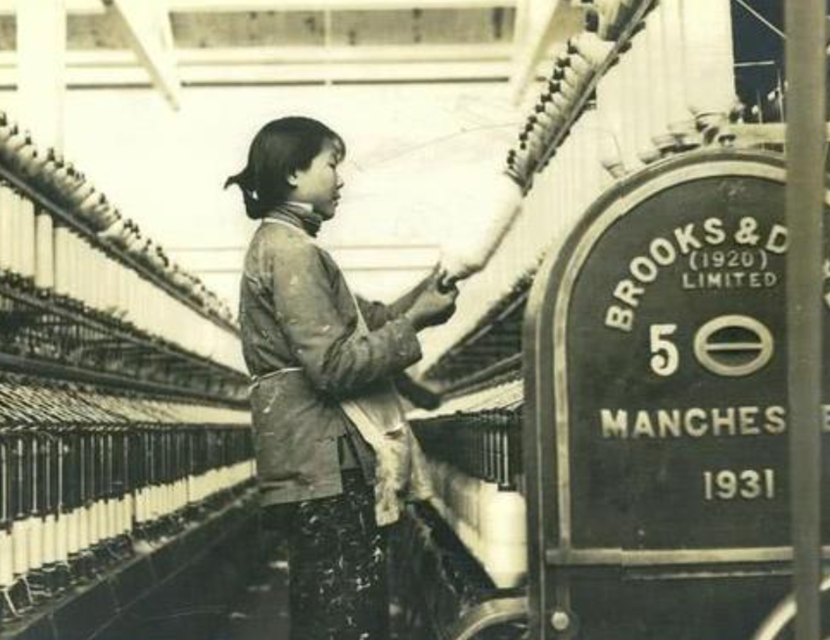
26 Feb 2021
Opera projects finds common threads between textile workers a world apart
A fascinating new partnership project has begun to weave together the histories of female textile workers in Leeds and Shanghai through the power of Chinese opera.
To coincide with celebrations for Chinese New Year, the project has seen Leeds Industrial Museum team up with researchers at the University of Leeds to explore the commonalities between the women who toiled in textile factories and on production lines thousands of miles apart.
Entitled Song of the Female Textile Workers, the online exhibition sees six specially created documentary films hosted on the museum’s website this month, each rediscovering a different facet of the UK-China textile industries as well as telling the stories of industrial and cultural development in Shanghai. Two videos were released each week throughout the three week Chinese New Year celebration period.
The project will also see the creation of a special one-actor performance, led by Wang Rousang, a Chinese national star performer at Shanghai Yue Opera House. The performance will be presented in collaboration with Shanghai Textile Museum, Leeds Industrial Museum, Stage@Leeds and Yorkshire based digital SME Human VR.
Live rehearsals and performance of Song of the Female Textile Workers are scheduled to take place in April and August 2021 at Stage@Leeds and will be live streamed between Shanghai Yue Opera House, China and Stage@LeedsDigital, UK.
The UK established its first mill in Shanghai in the late 19th century, prompting the rise of China’s textile Industry. By the end of the 1940s, there were 4,550 textile factories in Shanghai and the majority were staffed with female migrant workers from neighbouring Zhejiang province.
They formed China’s first female working-class and developed their own entertainment form, Shanghai All-female Yueju.
By the 1950s, both the Shanghai textile industry and Shanghai All-female Yueju expanded nationally and became the national industry and second largest theatrical form.
More than 5,000 miles away, Armley Mills, now home to Leeds Industrial Museum, once operated as the biggest woollen mill in the world.
The mill employed hundreds of workers from the local community including men, women and children and was one of the driving forces behind the city’s rise to becoming a world leader in textile and cloth manufacture for generations.
Dr. Haili Ma, Associate Professor in Performance and Creative Economy at the University of Leeds, who leads the project across the UK and China said: “Leeds is a twin city of Hangzhou, from where the Shanghai migrant female textile workers originated. We are delighted to find UK-China commonalities through the life and work of female textile workers. This project will further enhance Leeds-Hangzhou cultural and political connectivity and strengthen Yorkshire and China east delta (Shanghai-Zhejiang) cultural-economic development.
“We are privileged to be partnering with these heritage textile mills turned contemporary museums: Shanghai Textile Museum and Leeds Industrial Museum.”
John McGoldrick, Leeds Museums and Galleries’ curator of industrial history added: “The textile industry was a huge part of the cultural and economic identities of countries all across the globe, shaping how generations of their residents lived and worked.
“The links Leeds has with those cultures can still be seen today and we’re very proud to be supporting this project and celebrating the shared experiences of those who helped lay the foundations of our cities and their heritage.”
Find out more about Song of the Female Textile Workers by visiting the exhibition online at: https://museumsandgalleries.leeds.gov.uk/leeds-industrial-museum/song-of-the-female-textile-workers/
ENDS
For media enquiries contact:
Leeds City Council Communications team
communicationsteam@leeds.gov.uk